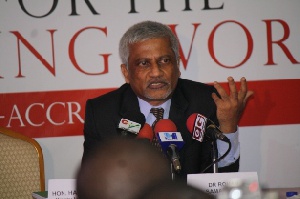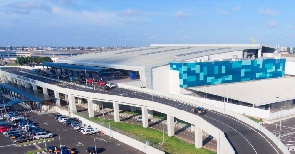A report released on Thursday by Dr. Rohan Samarajiva of LIRNEasia, an information and communication technology (ICT) policy and regulation think tank based in Sri Lanka, argues that current proposals from International Telecommunication Union (ITU) member states in Africa and the European Telecommunications Network Operators Association (ETNO) could slow economic progress, raise costs on users who can least afford them and limit Internet access in developing countries.
The report dubbed: “A Giant Step Backward or the Way Forward? An Analysis of some Proposals explains that the economic and personal benefits the digital economy is currently bringing to nations and peoples in the developing world could come to a standstill should proposals that give the ITU broad jurisdiction over Internet communications be legitimatized by the force of law.
The proposed revisions are to the International Telecommunications Regulations (ITR), overseen by the United Nations’ International Telecommunication Union (ITU), and will be discussed and voted on at the upcoming World Congress on International Telecommunications (WCIT-12) in Dubai this December.
Report author Dr. Rohan Samarajiva, founding chair and CEO of LIRNEasia and former telecommunication regulator in Sri Lanka, finds that proposals contributed by ETNO and the Africa region could artificially raise the cost of network interconnection, content delivery, and quality of service, and that these costs would ultimately be passed along to those least able to afford them or would result in exclusion from the Internet economy.
He goes on to note that the door would be opened for the creation of a top-down, inflexible international regulatory regime for the Internet, much in conflict with the current framework that has enabled growth in access, innovation, entrepreneurship and economic activity.
The report states that the ETNO proposal would give increased regulatory oversight to the ITU, a step that is unnecessary and counterproductive to Internet growth worldwide. For example, the contribution suggests the “sending party network pays” rule, which would force content providers to pay local telecom operators for the delivery of user-requested data, be implemented by the ITU body as opposed to commercial agreements. This suggests a government-sanctioned leveraging tool that operators can use to extract high sums from content providers with no room for negotiation, which could result in the “balkanization” of the Internet, where the majority of multimedia applications are available only to wealthy countries.
The report also examines the Africa Region proposal, which aims to expand ITR definitions beyond traditional telephone regulations to encompass the larger ecosystem of the digital economy, reversing the liberalized policies currently in place that have delivered affordable and increased connectivity to some of the world’s most remote peoples and places.
“Proposals that turn to the ITU looking for regulatory oversight are not only misguided, but they invite the potential for broad, heavy-handed overreach on a sector that has flourished by the current, flexible model,” says Dr. Samarajiva.
Internet growth in Ghana, for example, follows the trajectory of many developing countries in Africa and Southeast Asia, notes the paper. From 2010 to 2011, the ITU reports that Internet penetration in Ghana nearly doubled, increasing from 5.2 percent to 10 percent.
“Policies that reformed government-owned operators, promoted market entry and competition, and established regulatory mechanisms have resulted in a huge increase in telecom access in the developing world, and a regulatory overhaul that reverses this trend is backward-looking,” added Dr. Samarajiva.
To illustrate the benefits of Internet adoption occurring under the current model, Dr. Samarajiva gives the example of a schoolgirl in Accra, Ghana who was able to complete her algebra homework by using her smartphone to access resources offered by the Khan Academy, a free education website that offers access to online video lessons on a variety of topics.
In addition to proposing the expansion of ITR jurisdiction from land-line telephony to encompass the entire Internet ecosystem, the Africa Region proposal supports price regulation, quality of service standards, inter-carrier compensation and international financial support for universal service. This dramatic expansion of authority would also open the door to the regulation of content and speech on the Internet by seeking a greater role for the ITU in setting standards, imposing routing regulations over international traffic, resolving disputes between international operators, imposing obligations on governments in the areas of privacy, security and fraud.
Regional News of Friday, 28 September 2012
Source: Comfort Asiamah Darkwa/Global Media Alliance













